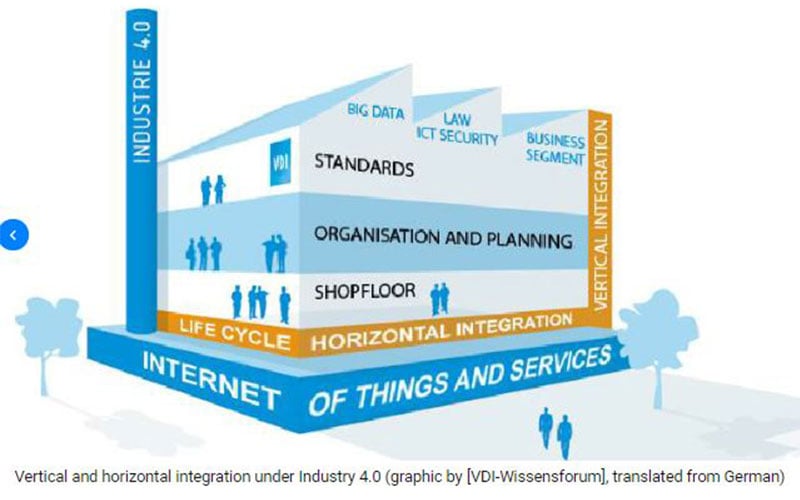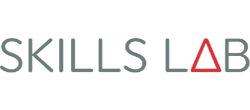The new lean: how lean manufacturing meets industry 4.0
SAGE Automation, Published: March 14, 2019 - Updated: March 14, 2019 (8 min read)
For more than thirty years, companies have widely adopted a Lean manufacturing mindset to continuously improve their operations. Now with the merger of digital and physical systems as part of the Industry 4.0 transition, businesses can use both ideas concepts to take operational excellence to a new level.
This blog will explore how the two concepts collide to provide more value. But first a quick recap:
What is Lean?
Originating in Japan in the 1950s, particularly at car maker Toyota, the Lean manufacturing approach is about the elimination of waste or activities which add no value to the process. Elimination of such wastes cuts complexity and cost. Lean provides a basis for operational excellence by standardising processes and creating a culture of continuous improvement by monitoring, proactively maintaining equipment and empowering employees.
What is Industry 4.0?
With data and connectivity at its core, industry 4.0 is about the merging of physical and digital worlds to gain analysed, actionable data insights. There are a number of technologies or trends driving this ‘fourth wave’ of technological advancement.
These are:
1. Internet of Things (IoT)
2. Big data and analytics
3. Additive manufacturing or 3D printing
4. Advanced robotics
5. Augmented and virtual reality
6. Cloud computing
7. Machine learning and artificial intelligence
8. Horizontal and vertical system integration (including Information technology (IT) and Operational technology (OT) integration)
9. Simulation
Industry 4.0 draws on Lean’s foundations in continuous improvement, but brings big data to the table.
The ability to connect devices, sensors, machines and software enables this rapid collection of data in real-time. This gives managers the ability to improve processes or predict failures before they occur, meanwhile machines can automatically optimise themselves, diagnose problems or configure more efficiently.
Stakeholders interviewed by Australia’s Advanced Manufacturing Growth Centre (AMGC) described Industry 4.0 as a way of thinking or a cultural journey companies go on with tangible and intangible outputs, particularly the value that can be created in the digital realm.
Introducing...'Lean Industry 4.0'
Lean and Industry 4.0 philosophies are often complementary and can give manufacturing or operations managers insight into achieving a higher level of production efficiency. Many are calling it ‘Lean Industry 4.0’.
Given the increasing complexity of operations, many companies find Lean techniques are not enough to address competitive pressure. By deploying the right combination of industry 4.0 technologies, manufacturers can boost speed, efficiency, and coordination and even facilitate self-managing factory operations. For example:
Factories are no longer a series of siloed production lines; industry 4.0 enablers like integration allow production managers to oversee interconnected networks of moving parts, akin to a living organism, that can highlight opportunities to improve, or even be trained to optimise performance.
This increased visibility plays directly into ‘improving lean improvement’ activities.
Boston Consulting Group says manufacturers who have successfully deployed both ideas have reduced conversion costs by as much as 40 per cent in five to 10 years; a better result than deploying either of the philosophies individually. But the concept is new, with fewer than five per cent of manufacturers reaching a high level of maturity in Lean Industry 4.0.
Three examples of how industry 4.0 technologies and lean principles meet
1. Customer Centricity
Lean has always put emphasis on a customer centric production approach first, and now digital technologies are enabling manufacturers to gain a clearer picture of their customers’ needs.
For example advanced data analysis and even artificial intelligence can be applied to customer data to better determine customer needs. The simplest example is in analysing app use behaviour, or in understanding when, where and how many people access a product’s origin information via the label. Mass customisation, where customers can heavily customise their orders, is also enabled through integrating automated and semi-automated robots into production lines, as they can cope with higher degrees of variety.
This is how the customer centric ‘just-in-time’ philosophies of lean, are enhanced by industry 4.0 technology levers.
2. Continuous Improvement
A continuous improvement program on a production line might selectively alter a variable, test it in real time, and review the results accordingly. New technologies like powerful simulation tools and the digital twin allow manufacturers to test their assumptions in the virtual world first, prior to implementing them or testing them in the physical-world. In this way, lean continuous improvement is enhanced by new industry 4.0 technologies.
3. Integrated Value Chain
Lean aims to eliminate waste in the value chain – from customer order through to delivery – and industry 4.0 enablers like horizontal and vertical system integration and data analysis are invaluable to this pursuit. Integration and connection of your enterprise, IT, operational systems, machines and devices creates a holistic view of the entire value chain. This enables managers to identify patterns or weak spots in the process, and prioritise them for improvement opportunities.

Vertical and horizontal integration in the smart factory. Image: Research Gate
Case study: Flexible operations and digital prototyping in response to lean wastes
SAGE Automation has applied Lean Industry 4.0 ideas to its own premises, where half of the shop floor was redesigned to have reconfigurable ‘assembly cells’ to cater for its completely custom products from OEM clients. It has most recently introduced digital prototyping and automation into the design, assembly and build process in response to known lean wastes within the production chain.
Read more: ‘Digital twin’ optimises SAGE manufacturing in industry 4.0 initiative
Takeaway
Lean is a well-established concept that has improved productivity and the customer experience for countless organisations. Now, with industry 4.0 enhancers like IT-OT integration, IoT and advanced data analysis, organisations are gaining a clearer understanding of the entire value chain to inform lean improvement opportunities and ultimately gain competitive advantage.
Going forward, organisations will do well to draw on ‘Lean industry 4.0’ as they progress in their digital transformation journey.
Our sister company Nukon specialises improving operational efficiencies through the use of real-time data. Learn more in our free guide the 'Day in the life of the group engineer: Driving operational efficiencies through real-time data'









